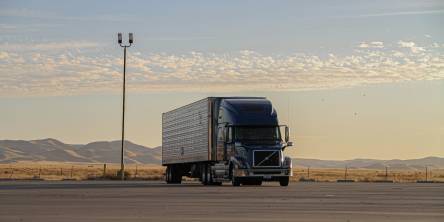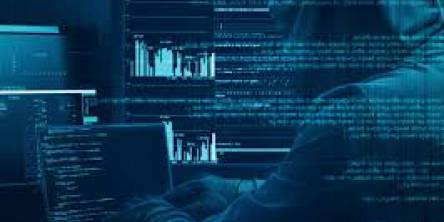Employee Surveillance and Privacy Compliance in Remote Work Policies

As more companies monitor productivity remotely, the risk of violating digital privacy laws grows. Data protection lawyers help organizations develop monitoring protocols that respect employee rights while ensuring legal compliance. Crafting clear policies and obtaining informed consent are key in avoiding lawsuits and penalties.
Understanding Employee Surveillance in a Remote Work Environment
The Shift in Work Dynamics
With the pervasive shift towards remote work, organizations are increasingly turning their attention to employee surveillance as a means of ensuring productivity and security. Remote work introduces unique challenges, such as managing tasks outside the traditional office environment and safeguarding sensitive company data. As a result, surveillance technologies have become more common, aimed at monitoring employee activities, tracking productivity metrics, and identifying potential security breaches.
Types of Employee Surveillance
Employee surveillance in remote work settings can take various forms. Companies may use software to track keyboard activity, monitor emails, or log website visits. Some organizations might adopt video conferencing tools that capture video and audio to ensure participation during meetings. These tools are designed to provide employers with insights into how work is progressing and to address any issues that might arise due to the lack of physical oversight.
Balancing Surveillance and Privacy
While surveillance can offer benefits in enhancing security and productivity, it also raises significant privacy concerns. Employees may feel that constant monitoring infringes upon their personal space and creativity. Therefore, companies must strike a balance between necessary oversight and respecting employee privacy. Clear communication about the scope and purpose of surveillance measures, along with obtaining consent, is vital. Furthermore, implementing policies that focus solely on work-related activities can help maintain trust and morale.
Legal and Ethical Considerations
Employers must navigate the legal and ethical landscape of employee surveillance carefully. Different jurisdictions have varying laws regarding what constitutes acceptable monitoring practices. Companies should ensure compliance with these regulations and consider the ethical implications of their surveillance strategies. By fostering a transparent and collaborative environment, organizations can achieve effective oversight while respecting employee rights.
Key Privacy Compliance Challenges in Remote Work Policies
Balancing Monitoring and Privacy
One of the most significant challenges organizations face is striking a balance between the need for employee monitoring and respect for individual privacy rights. As remote work becomes more prevalent, companies are increasingly investing in employee surveillance technologies to ensure productivity and data security. However, implementing these tools requires a careful approach to avoid infringing on personal privacy. Employers must consider the ethical implications and legal requirements governing employee monitoring.
Ensuring Data Protection
Another critical challenge is safeguarding sensitive data in a remote work environment. With employees accessing company information from various locations, the risk of data breaches and unauthorized access increases. Organizations must implement robust security measures, including encryption and secure access protocols, to protect both personal and company data.
Regular training and updates on best practices for data protection can empower employees to contribute to maintaining a secure digital workspace. Compliance with regulations such as the General Data Protection Regulation (GDPR) is essential, as it requires companies to ensure that their data management practices meet stringent standards.
Managing Regulatory Compliance Across Jurisdictions
Remote work often involves employees distributed across multiple jurisdictions, each with its own privacy laws and regulations. Navigating this complex legal landscape poses a significant compliance challenge. Companies must stay informed about the varying legal requirements in each region to ensure that their remote work policies adhere to local laws. This may involve consulting legal experts or leveraging compliance software to monitor changing regulations.
Final Thoughts
In navigating the delicate balance between employee surveillance and privacy compliance within remote work policies, you hold a pivotal role in shaping an ethical and legally sound work environment. Consulting with data protection lawyers can help ensure that your organization's practices align with evolving privacy regulations. By prioritizing transparency, fostering trust, and adhering to regulatory standards, you can ensure that your organization's surveillance practices respect individual privacy while safeguarding corporate interests.
Similar Articles
Stripe has set the gold standard for online payments. But in 2025, businesses that process large volumes of transactions, seek full control over their infrastructure, or want to reduce dependency on third-party platforms are seriously considering building their Stripe-like payment gateways.
Keeping pets safe is a top priority for dog owners. With advancements in technology, taking care of man's best friend has become more manageable and sophisticated. Among such developments, the incorporation of GPS tracking systems has revolutionised how owners look after their dogs.
What happens when standard cameras fail in the face of extreme radiation?
Over time, truck or auto fleet tracking has grown in popularity and value. A fleet tracking device is an updated, computerized gadget that gathers data from the whole fleet to provide a complete picture of where each truck is. It not only records the truck's position but also its fuel usage, mileage, and driving history, among other things.
A vehicle tracking system provides several advantages to your business, including increased driver and vehicle safety, decreased costs, and improved productivity.
Parents worry about their children while they're away from home. It doesn't matter where your children are or what they are doing. Parents can monitor their children remotely using child tracker devices
Which is better Navionics or CMap? CMap or Navionics, which system will you choose for your fishing boat? This is one of the first questions you might ask yourself when you plan on getting a boat for personal use or for business purposes.
Criminal investigators (CIs) play a vital role in law implementation, criminal investigations, and criminal justice. They work hard to fix open cases, a job that frequently takes weeks or months to complete.
Traditionally at the end of the year, most information service providers and solutions summarize the year and present their vision for the country of aggression for the next year. We will publish a selection of 10 predictions from IS buyers by 2020. Below is the box is a link to all the forecasts we found during the preparation process.






